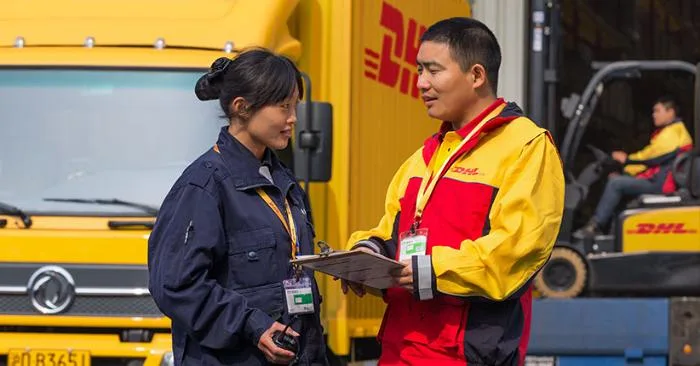
Customs clearance can be the trickiest checkpoint in your shipment’s journey when shipping internationally. The key to a hassle-free customs clearance is compliance. When preparing customs declarations and security filings to Customs Authorities on your behalf, DHL Express undertakes the responsibility of exercising due diligence to comply with customs regulations. Therefore, it is essential to ensure that your shipment, data, and documentation are compliant with applicable laws, regulations, and DHL Express Terms & Conditions.
What is Customs Compliance?
Customs compliance is the adherence to trade regulations of whichever countries you are exporting from and importing to. Customs compliance in DPDHL refers to the standards and best practices we have adopted on import and export activities to ensure that we follow the international regulations, laws, and ethical standards.
Failure to adhere to local rules and regulations when dealing with international trade may cause companies to incur penalties, delays, confiscation of shipments that can impact business operations, or worse sanctions and prosecution according to local regulations. Here are non-compliance areas that you should avoid to ensure a smooth shipping experience.
Four Non-Compliance Risks to Avoid
1. Under-declaring the value of goods
According to World Trade Organization, customs valuation is a method applied to determine the true and accurate customs value of imported goods to enable the calculation of applicable customs duties and taxes.
Undervaluation, on other hand, is under-declaring the value of goods (lower than their actual transactional value) in order to pay less duties and taxes to customs authorities. An example of this is declaring RM5 for a mobile phone that was sold for RM300.
What you must do?
- Declare the actual transaction value of goods paid or payable for the goods sold, instead of providing the price of manufacturer or production.
- Provide a shipping invoice with a detailed breakdown of all the items for the applicable cost of elements (goods, freight, insurance, etc.) in alignment with the INCOTERM.
2. Shipping counterfeit and pirated goods
The trade of counterfeit and pirated goods breaching the intellectual property rights (IPR) of the rights holders is illegal and unacceptable because this threatens the global innovation economy, business competitiveness, livelihoods, and even the health and safety of consumers.
The example of counterfeit goods is fake shoes, fake medicines, fake electronics, fake bags, etc. These are often low quality, can harm people’s health, and are sold illegally under another’s brand name without permission from the brand owner.
What you must do?
- Ensure your shipment does not contain any infringing goods such as fake branded products. This is considered illegal and is prohibited for carriage.
3. Misdeclaring the true shipper or receiver names
Valid shipment information is a legal requirement for a compliant Security Filing, Denied Party Screening, and Customs Declaration. Therefore, misdeclaring or providing the incomplete name and address of the true shipper (consignor) and receiver (consignee) in order to avoid security screening by authorities may further lead to shipment delays. For example, stating “Benny” instead of the true shipper or receiver’s full name.
What you must do?
- Always provide the real full name of the shipper and the receiver, correct address, and complete contact information like an email address or phone number on the documentation and data to DHL Express.
4. Incomplete description of goods
Providing incomplete or inaccurate descriptions of goods in order to avoid security screening by customs authorities may cause customs delays. For an instance, declaring “parts” instead of “automobile brakes” or citing apparel instead of men’s shirts.
What you must do?
- To avoid any disruptions, ensure acceptable good descriptions. Include complete information which has sufficient detail on the nature of goods like - what the item is, what is it used for, what is it made of, etc. Do not use ‘generic’ goods descriptions like parts, products, electronics, etc. Instead, give a precise and detailed description of your shipment.
- In addition to providing the goods descriptions, customers should also provide the corresponding Harmonized System (HS) Code (full digits) for both export and import countries on their commercial invoice/data.
Key points to ensure a compliant trade
Here are some key points to keep in mind to ensure a compliant trade when preparing your shipment with DHL Express:
- Provide accurate goods description, goods value, including the true shipper and receiver’s name and contact information.
- Ensure the accuracy, completeness, and timeliness of all the information and documents you submit to DHL.
- Be mindful of the non-compliance points as the consequences can cause a severe impact on your business, resulting in hefty penalties and even prosecution in some cases according to the local regulations.
- Do take note that DHL will neither accept nor carry your shipment if it contains counterfeit products, which breaches the Intellectual Property Rights.
- DHL reserves the right to inspect documents and/or the goods being shipped and to take appropriate actions to comply with Customs Regulations.
If you want your shipment to clear customs smoothly then make sure to follow the above customs compliance checklist. This information will help you as well as DHL Express in expediting your shipments and prevent you from incurring extra costs or fines and any delays.
To know more about how DHL Express can help you navigate through international customs complexities, speak to our Certified International Specialists today!












































